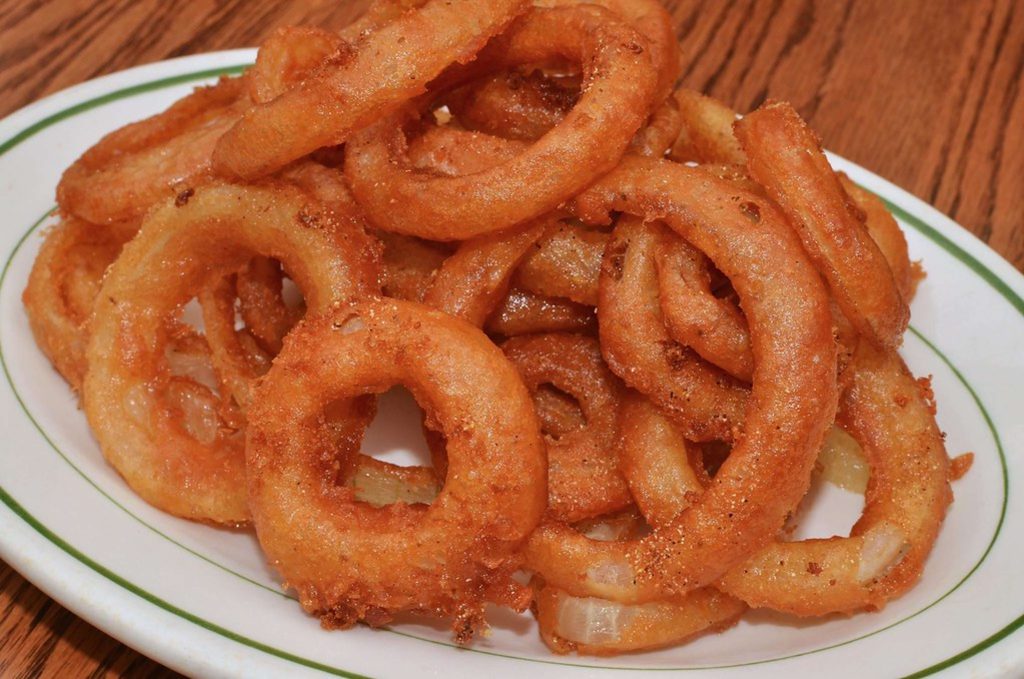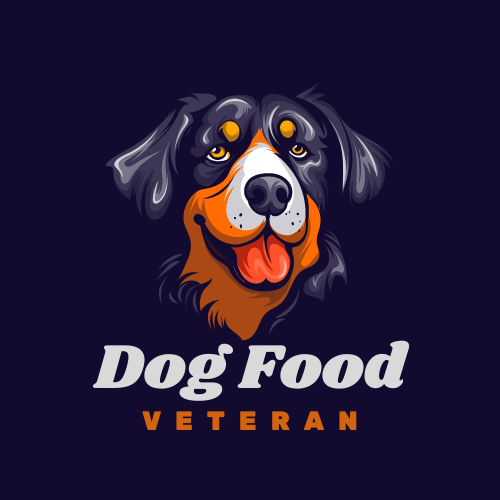
To put it simply, onion rings and any other food containing onions are not safe for dogs to consume, so no they cannot eat onion rings. I know you’re curious because this snack is popular for its crispy texture and delicious taste. Ohh, when you remember how you dipped it in a batter or breading and its beautiful golden brown color after you deep fried it, the crunch on the outside and softer texture on the inside, this contrasting combo that makes you vow you must enjoy it at least 3 times a week.
Trust me, I know how it feels and why it seems hard to hold yourself from heaping enough helpings for dogs to share in the delicious experience. It does seem like a lot for you, but you’re doing the right thing when you keep your onion rings from them no matter how those doe eyes tempt you to give
You see, onions whether raw or cooked contain compounds that can damage your pup’s red blood cells leading to anemia. In fact, small amounts may cause symptoms like vomiting, diarrhea, lethargy, and weakness.
Why Are Onions Toxic to Dogs?
Onions contain a compound called N-propyl disulfide, which is dangerous to dogs’ red blood cells. This compound can cause oxidative damage to the cells, leading to a condition known as hemolytic anemia.
Hemolytic anemia occurs when the red blood cells rupture and are destroyed at a faster rate than the body can replace them.
This can result in a shortage of red blood cells, which are responsible for carrying oxygen throughout the body. Symptoms of hemolytic anemia in dogs include weakness, lethargy, pale gums, increased heart rate, and difficulty breathing.
Note that other members of the Allium family, such as garlic, chives, and leeks, also contain similar toxic compounds and you should avoid them in your dog’s diet
What are the dangers of onion rings for dogs
While the main concern with onion rings for dogs is the toxic compound N-propyl disulfide found in onions, the fact that onion rings are fried food also poses additional risks to a dog’s health.
Fried foods, like onion rings, are high in fat and grease, which can be difficult for dogs to digest properly leading to stomach upset, vomiting, diarrhea, and pancreatitis (inflammation of the pancreas).
What to do If your dog eats onion rings
If you notice your dog has eaten onion rings or any other food containing onions, please immediately seek professional help. Here are the steps you should follow:
- Contact your veterinarian or an animal poison control center right away. Explain the situation and provide details about how much onion your dog may have ingested and when it occurred.
- Do not attempt any home remedies or try to induce vomiting without professional guidance. Some remedies can be ineffective or even harmful, and inducing vomiting improperly can lead to complications.
- Follow the instructions provided by your veterinarian or the poison control experts. They may advise you to bring your dog in for an examination, bloodwork, and potential treatment.
- If your dog is showing symptoms like lethargy, pale gums, vomiting, or diarrhea, consider it a medical emergency and seek veterinary care immediately.
How do I prevent my dog from eating onions?
It’s easy. All you need is preventative measures and I’ll explain them in six steps, so read carefully:
- Keep onions and every other food that contains onions out of reach: Store your onions, onion rings, and any other foods containing onions in secure cabinets or areas where your dog cannot access them. This also includes keeping countertops and tables clear of these items.
- Educate your family members and guests: Make sure everyone in your household, including children and visitors, is aware of the danger onions pose to dogs. Instruct them never to feed your dog onions or any onion-containing foods, even as a treat.
- Be cautious when cooking: If you’re preparing meals that include onions, keep your dog out of the kitchen during the cooking process. Clean up any dropped onion pieces immediately to prevent accidental ingestion.
- Supervise during meals: When you are enjoying onion rings or other onion-containing foods, make sure your dog is in a separate area and cannot beg or steal from your plate.
- Secure trash cans: Dispose of any peels, leftover onion rings, or any other onion-containing food waste in a secure trash can that your dog cannot access or knock over.
- Read ingredient labels: Be vigilant when purchasing dog treats, dog food, or any other products intended for your pet. Check the ingredient list carefully to ensure it does not contain onions, garlic, or any members of the Allium family.
What is the treatment for onion poisoning in dogs?
Here’s what the onion poisoning treatment looks like in most cases:
- Seeking veterinary help immediately: As soon as you suspect your dog has consumed onions, contact your veterinarian or an animal poison control center for guidance. Time is of the essence, as the sooner treatment begins, the better the outcome.
- Inducing vomiting (under veterinary supervision): In some cases, your vet may recommend inducing vomiting to remove any remaining onion from your dog’s stomach. However, this will only be done under professional supervision, as improper vomiting induction is harmful.
- Administering activated charcoal: Your vet may give your dog activated charcoal, which can help bind to any remaining toxins in the digestive system and prevent further absorption.
- Providing supportive care: Depending on the severity of the case, your dog may require supportive care, such as intravenous fluids, oxygen therapy, or blood transfusions. This helps manage the anemia and other symptoms caused by the destruction of red blood cells.
- Monitoring and follow-up: Your veterinarian will likely recommend ongoing monitoring of your dog’s red blood cell count and other clinical signs. Follow-up appointments and additional treatment may also be necessary until your dog’s condition stabilizes.
What are the better treat alternatives for dogs?
Instead of putting yourself in a dicey situation with onion rings, try your hands on these alternatives instead:
- Apple slices: Apples are an excellent source of fiber and vitamins for dogs, and they still offer that crisp, sweet taste. Your dog will love it
- Banana chunks: Bananas are a great source of potassium and are a favorite treat for many dogs. Don’t hesitate to go for it.
- Sweet potato fries (baked, not fried): Baked sweet potato fries make a nutritious and crunchy treat for your dog without the added fat and grease from frying.
- Frozen vegetables: Frozen veggies like green beans and peas can be a refreshing and low-calorie snack for your dog during hot weather.
- Dog biscuits: Look for high-quality dog biscuits made with wholesome ingredients and without any onion or garlic.
- Carrot sticks: Carrots are a crunchy and vitamin-rich treat that many dogs enjoy, your dog included.
- Plain popcorn: Air-popped popcorn without any added butter or salt can be a fun occasional treat for your pup.
Final words
To sum up, everything I’ve said in this guide, onion rings are strictly off-limits for our dogs. Instead of sharing onion rings with your pup, consider other safe and enjoyable alternatives that I have mentioned above.
Trust me, these treats not only satisfy your dog’s cravings but also provide them with valuable nutrients without compromising their health.
Read More: Can Dogs Eat Chips?

